Development Workshop Zambia is governed by a board with extensive experience in Zambia and internationally.
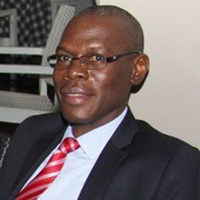
Patrick Kampengele
is a Zambian Engineer with an extensive career in engineering and project management. Patrick’s expertise spans multiple countries – Zambia, Zimbabwe, Botswana, Mauritania, the Democratic Republic of Congo, and South Africa.
Patrick has led projects across the infrastructure, mining, and energy sectors. Currently, as Managing Director at Knight Piésold Zambia, he oversees constructing major tailings dams with 60-meter embankments and storage capacities of 800 million tons. Patrick is experienced in governance, previously, he led as Executive Director of URS Scott Wilson Piésold Zambia, he chaired the Engineering Registration Board, the Association of Consulting Engineers of Zambia, and the National Council for Construction’s Board of Directors. The also has worked as an advisor to the Investments Committee of the Development Bank of Zambia.
His influence extends globally as an active member of the International Commission for Large Dams, particularly the Tailings and Waste Lagoons Committee. In addition, he is an Arbitrator/Adjudicator and Accredited Mediator.
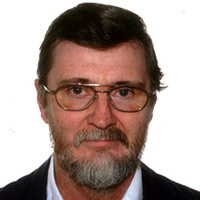
Allan Cain
– O.C. is a founding director of Development Workshop and has lived and worked in Africa since 1980. He is an architect, specialist in project management, participatory planning, sustainable urban development and water & sanitation.
He has a degree in Environmental Studies, did his professional studies at the Architectural Association (London, UK) and further specialist studies at Harvard University and Bolder, Colorado and in 2022 received an Honorary Doctorate in recognition of his practice. He has been a Visiting Professor at the School for International Development and Global Studies at the University of Ottawa, an Adjunct Research Professor at Carleton University and has lectured at universities in Angola, China, Norway, USA, South Africa, Portugal and UK. Mr. Cain was awarded an Order of Canada in 2004 for his work in international development, social housing and contribution to peacebuilding in Angola. He has worked as a consultant and lead research projects for the World Bank, the African Development Bank, UN Habitat the European Union and other international organisations. He is on the boards of several development institutions. His articles and papers have been published widely in international journals.
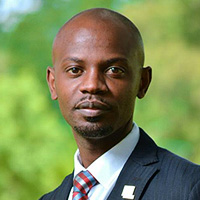
Dr. Given Hapunda
is a Senior Lecturer and Researcher at the University of Zambia’s Department of Psychology with an academic and research background in health, child development and psychosocial problems. He holds a PhD in Developmental and Pediatric Psychology from the University of Tilburg in the Netherlands, an MA in Child and Adolescent Psychology from a joint program between the University of Zambia and Leiden University, Netherlands, as well as an MSc in Health Sciences from Sweden’s Kristianstad University and a BA in Psychology and English is from the University of Zambia.
He lectures in various courses such as behavioural research methods, sensation and perception, and health psychology. In addition, he plays a pivotal role as the Research Coordinator and Coordinator for the Participatory Monitoring and Evaluation Program in the Department of Psychology. Given is also a reviewer Frontiers in Psychology and has recently been appointed to the editorial board of the African Research Journal and Zambian Papers. He also supports the Africa Research Excellence Fund as a mentor and reviewer. He is also the co-chairmanship of the Knowledge Translation Workgroup of the National Health Research Authority in Zambia.
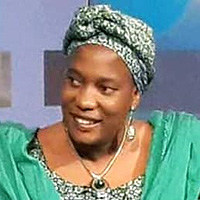
Agness Mumba-Wilkins
is a consultant who draws her technical, policy, programmatic and development expertise from an interdisciplinary and intersectional lens. She focuses on how gender intersects with sexuality, education, health, economics, law, religion, culture, race, ethnicity, class, and location to [re]produce social inequalities. Her most recent consultancy work focused on a grant-writing proposal on Gender-Based Violence (GBV). She is a former Executive Director for the Forum for African Women Educationalists of Zambia, a Principal Education Standards Officer in the Zambian Ministry of Education, and a Secondary School Principal.
Agness is currently a Board member of the Lusaka Water and Sanitation Company and she holds an MSc in Public Health- Health Promotion and Environmental Health (Leeds Beckett University-UK), an MSc in Equality Studies (National University of Ireland -University College Dublin-Ireland), a BA in education (University of Zambia); a Harvard Kennedy Scholar in Executive Education; a Fulbright (Hubert Humphrey) fellow in public policy and administration (University of Minnesota) and an Associate Fellow of the British Higher Education Academy. Her recently completed PhD project focused on youth sexuality education in Zambia.
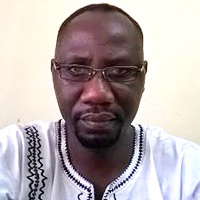
Mubiana Muyangwa
is a development practitioner in the Climate Resilience, Water, sanitation and Hygiene, Livelihood and Environment sectors. Mubiana has worked in the NGO circles for more than 20 years with consultancy and undergraduate lecturing on short term basis. Mubiana’s view is that for inequality to be addressed, there should be the eight I’s namely: Institutions, Integration, Innovation, Instruments, Infrastructure, Investments, Information and Incentives.
Mubiana has worked in various senior management portfolios for various NGOs including Village Water Zambia, Africare, WaterAid and now works as the Executive Director for Empowered Communities Helping Others (ECHO). Mubiana holds various a Diploma in Forestry, degree in Development Studies, MSc in Public Health – Health Promotion.
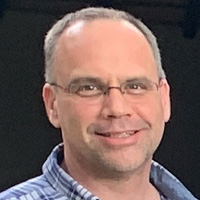
Beat Weber
is the founder and executive director of DW Switzerland, Namibia and Zambia. He is trained as an urban geographer and has lived and worked in Southern Africa for more than 22 years implementing urban development projects with communities, NGOs and Governments.
Beat set up DW Namibia in 2016, which then quickly grew it into one of the largest NGOs in the country, with multi-million-dollar annual budgets and working across Namibia. Residing in Switzerland and heading DW Switzterland since 2022, he is expanding DW’s funding and collaborative network. He holds a PhD in Urban Studies from Heriot Watt University in Edinburgh, Scotland.

Jessica Brown
has been in the field of Early Childhood Development and education for over 10 years working at community, national and multi-national levels. Jessica is leading the ECD programmes with Development Workshop. Jessica also works on ECD reforms with European Member States, together with the European Union. Jessica has worked as an ECD specialist with UNICEF Europe and Central Asia regional office where she was advising national programmes across 22 countries, as well as directly supporting ECD reforms in EU member states.
She is a reviewer for the Southern African Journal of Early Childhood and is a member of the European Union Early Childhood Education and Care Working Group. She resides in Namibia and has master’s degrees in Psychology and Political Science.
Internal and external control mechanisms
Accounting and bookkeeping is outsourced to a chartered accountant with offices in Lusaka and Kitwe. Strict internal control mechanisms are applied:
- Payment authorization: The processing of payments always needs two signatories, of which one is a local member of the board.
- Procurement: Any purchase of goods or services above a value of the equivalent of ZMW 10,000 needs three quotations. Other strict procurement rules apply, as required by specific donors (e.g. the German Development Bank or UNICEF).
- Internal control: Internal control mechanisms are clearly defined and enforced by DW’s management and accountants.
- Budget Tracking: To ensure the efficient use of funds, the budgets of all projects are monitored with weekly financial reports provided by the accounting firm.
- Financial audits: Auditors are appointed by the respective boards and financial audits are implemented on an annual basis.
